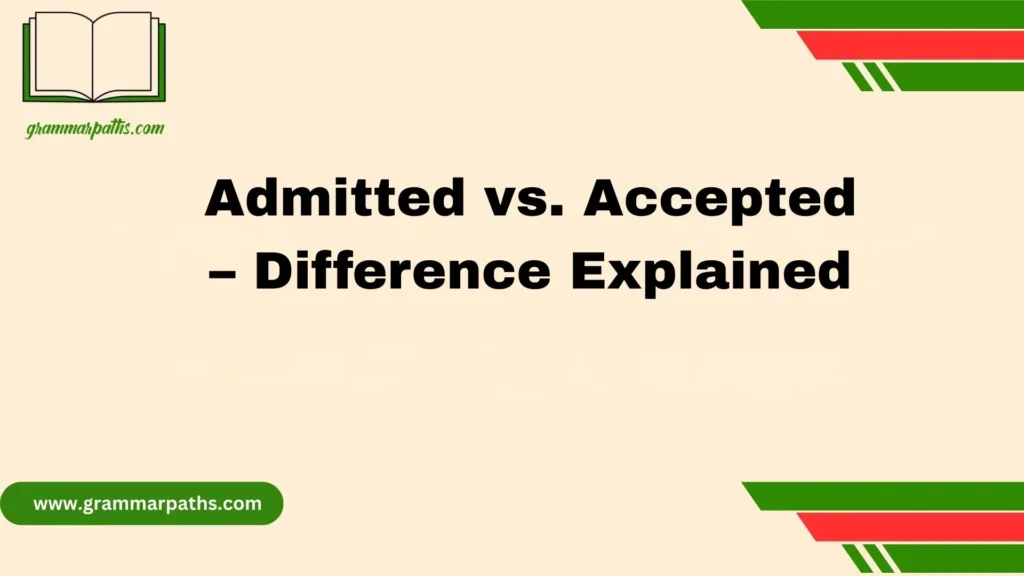A flutist or flautist is a skilled musician who plays the flute, one of the oldest and most melodious instruments in the world. The term flutist is commonly used in American English, while flautist is preferred in British English, but both refer to the same profession. Playing the flute requires precise breath control, finger coordination, and a deep understanding of musical tones and rhythm. Throughout history, the flute has held a significant place in classical music, jazz, folk, and even modern pop genres, showing its versatility and timeless appeal.
A professional flutist often performs solo pieces, joins orchestras, or collaborates in chamber music ensembles, creating soothing melodies that can express a wide range of emotions. Many notable musicians, from Jean-Pierre Rampal to James Galway, have elevated the art of flute playing to new heights, inspiring countless aspiring artists around the globe. The journey to becoming a skilled flautist involves years of practice, music theory training, and performance experience.
Whether you call them a flutist or a flautist, their dedication, artistry, and passion for music breathe life into every note, making the flute a symbol of grace, expression, and musical excellence across cultures.
Etymology: Where “Flutist” and “Flautist” Came From
To understand the flutist vs. flautist divide, we have to go back a few centuries — to the origins of the word “flute” itself.
The English “flute” traces its roots to the Old French word flaute, derived from the Latin flatus, meaning “a blowing.”
From that same family came the Italian flauto, which would later shape flautista — the Italian word for a flute player.
“Flutist”: The Earlier Arrival
The term flutist appeared in English around the 1600s, influenced by the straightforward English habit of forming musician names from instruments — pianist, violinist, cellist.
It was practical, logical, and easy to say.
Early records show “flutist” used in American colonial writing and musical references. For instance, the Boston Gazette (1740s) and Philadelphia Evening Post (1770s) occasionally used “flutist” when referring to local musicians.
“Flautist”: The Italian Echo
The word flautist entered English around the 18th century, about a hundred years after “flutist.”
It reflected Britain’s admiration for European, especially Italian classical music, where flautista was already popular. English musicians, trying to sound more cultured, borrowed it — and it stuck.
Here’s a quick comparison:
| Term | Language Origin | First Recorded Use | Derived From | Region of Popularity |
| Flutist | English | Early 1600s | Flute + -ist | United States |
| Flautist | Italian (via British English) | 1760s | Flauto + -ist | United Kingdom, Commonwealth |
The Historical Context: How Language and Music Intertwined
During the 17th and 18th centuries, Italian music dominated Europe. Words like pianoforte, concerto, and allegro became staples of musical vocabulary. Naturally, “flautist” fit right in.
Meanwhile, in the New World, early Americans sought linguistic independence from Britain. They simplified spelling and preferred practical English terms — “color” instead of “colour,” “center” instead of “centre,” and yes, “flutist” instead of “flautist.”
The difference wasn’t just about language. It symbolized cultural identity.
Britain leaned toward tradition and prestige; America valued clarity and simplicity.
As language historian David Crystal notes, “American English tends to choose directness over ornament.” The same is true for this musical term.
Regional Usage: British vs. American English Explained
The main divide between flutist and flautist boils down to geography.
In American English, “flutist” dominates across all settings — newspapers, music schools, concert programs, and academia.
In British English, “flautist” remains the norm, reflecting its historical connection to classical European traditions.
Let’s compare real-world usage:
| Publication / Institution | Preferred Term | Region |
| The New York Times | Flutist | USA |
| The Washington Post | Flutist | USA |
| BBC Music Magazine | Flautist | UK |
| The Guardian | Flautist | UK |
| Royal Academy of Music | Flautist | UK |
| Juilliard School | Flutist | USA |
The contrast is striking. Even global orchestras mirror this divide:
- The London Symphony Orchestra lists “Principal Flautist.”
- The Chicago Symphony Orchestra introduces their “Principal Flutist.”
“Flutist” in American English: The Clear Favorite
American dictionaries — Merriam-Webster, American Heritage, and Cambridge (US edition) — all list flutist as the primary form.
Why Americans Prefer It
- Consistency: It follows the same pattern as pianist and violinist.
- Ease of Pronunciation: “Flutist” feels smoother to American ears.
- Historical Usage: The earliest American flute publications used “flutist.”
In Modern American Publications
Examples of “flutist” appear in:
- The New York Times: “The flutist delivered a stunning performance.”
- The Washington Post: “A flutist from the National Symphony Orchestra led the ensemble.”
- Billboard Magazine: Features pop artists like Lizzo, often described as “rapper and flutist.”
Case Study: The U.S. Music Education System
In American schools, music textbooks exclusively use “flutist.”
The National Association for Music Education (NAfME) and most U.S. university music departments teach this form as the correct term.
So, if you’re writing for an American audience — or auditioning for an orchestra in the U.S. — “flutist” is your word.
“Flautist” in British English: Tradition with a Classical Touch
Cross over to Britain, and you’ll hear “flautist” almost everywhere.
It carries a sense of heritage and formality, aligning with Britain’s classical traditions.
Why the British Prefer “Flautist”
- Influence of Italian Music: Britain’s elite music culture drew heavily from Italian composers.
- Aesthetic Appeal: “Flautist” sounds softer and more elegant to British ears.
- Historical Adoption: The Royal Society of Musicians adopted “flautist” in the 18th century, setting the tone for future usage.
Examples from British Sources
- BBC Music Magazine: “Principal flautist of the Royal Philharmonic Orchestra…”
- The Guardian: “Renowned flautist Jane Mitchell premieres a new solo work.”
- Oxford English Dictionary: Recognizes “flautist” as the preferred British form.
British educational institutions like the Royal College of Music and Trinity Laban Conservatoire also use “flautist” consistently.
Expert Opinions: What Professionals Actually Say
Language and music experts have debated the issue for decades.
Here are some influential voices:
Nancy Toff’s Perspective
Nancy Toff — author of The Flute Book — prefers flutist, arguing that it’s “historically and linguistically correct.”
She points out that “flutist” appeared in English before “flautist” and aligns with English word formation rules.
Sir James Galway’s View
Renowned Irish musician Sir James Galway famously identifies as a “flautist.”
In interviews, he’s said that “flautist” sounds more lyrical and fits his European roots.
Linguistic Consensus
Most language authorities agree that:
- Both forms are correct.
- Flutist is standard in American English.
- Flautist is standard in British English.
As linguist Ben Zimmer summarized in The Atlantic:
“It’s not a matter of right or wrong — it’s a matter of where your audience listens.”
Pronunciation Guide: Saying It Right
Getting the pronunciation right can be just as important as using the right word.
Here’s how each is pronounced:
| Word | IPA Pronunciation | Common in | Example Sentence |
| Flutist | /ˈfluːtɪst/ | United States | “The flutist tuned her instrument carefully.” |
| Flautist | /ˈflɔːtɪst/ or /ˈflɑːtɪst/ | United Kingdom | “The flautist performed with effortless grace.” |
To hear both, you can visit the Cambridge Dictionary online, which provides regional audio examples.
Tip:
In American English, avoid saying “flow-tist.” Stick to “floo-tist.”
In British English, “flaw-tist” sounds natural.
The Global Stage: Modern Acceptance in Music and Media
In a connected world, both terms appear across global media. However, data shows one still leads overall.
Trends in Usage
A 2024 analysis of online publications revealed:
- “Flutist” appears 65% of the time globally.
- “Flautist” appears 35%, mostly in the UK, India, and Australia.
Digital Influence
Platforms like YouTube, Spotify, and Instagram blend global audiences.
Artists often choose based on branding:
- American artists like Lizzo or Jeanne Baxtresser call themselves “flutists.”
- British artists such as Katherine Bryan or Elena Duran use “flautist.”
Even Wikipedia mirrors this divide: the U.S. version uses “flutist,” while the UK entry uses “flautist.”
In Academic Music Circles
Research papers, symphony programs, and competitions may accept both — but always stay consistent with one form.
What Should You Call Yourself? Practical Advice for Musicians and Students
Choosing between flutist and flautist depends on where you live, study, or perform.
Simple Rule of Thumb
| Situation | Recommended Term | Reason |
| Writing for an American audience | Flutist | Preferred U.S. English term |
| Writing for a British audience | Flautist | Traditional UK term |
| International / Neutral context | Flute player | Universally understood |
| Academic paper (U.S.) | Flutist | Matches American academic style |
| CV / Performance bio (UK) | Flautist | Matches British professional style |
If you’re performing in multiple countries, you can adapt based on the setting.
For instance, an American musician performing in London might write “Principal flautist (known as flutist in the U.S.)” — acknowledging both audiences gracefully.
Bottom line: use the version that fits your audience and identity.
Neither choice will ever make your music sound less beautiful.
Fun Facts and Common Misconceptions
Language is full of myths — and this topic has plenty.
- Myth 1: “Flautist is more correct.”
✗ False. “Flutist” actually appeared earlier. - Myth 2: “Flutist sounds less professional.”
✗ Not true. Most professional American orchestras use “flutist.” - Myth 3: “Only the British use ‘flautist.’”
✗ It’s popular in other Commonwealth countries too, like India and Australia. - Myth 4: “You can’t use both.”
✗ You can — but be consistent in each piece of writing.
Global Translations
Other languages have their own melodic terms:
| Language | Term | English Translation |
| Italian | Flautista | Flautist |
| French | Flûtiste | Flutist |
| Spanish | Flautista | Flautist |
| German | Flötist | Flutist |
Conclusion
In conclusion, a flutist or flautist is more than just a musician—they are an artist who brings emotion and expression to life through the flute. Whether performing in a classical orchestra, a jazz band, or as a soloist, their mastery of breath control, finger coordination, and musical interpretation creates a captivating experience for audiences.
The distinction between the terms—flutist in American English and flautist in British English—does not change the dedication, skill, or artistry required to excel in this craft. Aspiring flutists or flautists must commit to consistent practice, music theory knowledge, and performance experience to reach professional levels. Ultimately, the flute’s enchanting sound, brought to life by talented flutists, remains timeless, bridging cultures and musical genres with elegance and passion.
FAQs
Q1: What is the difference between a flutist and a flautist?
A1: There is no difference in meaning. Flutist is used in American English, while flautist is the British English term. Both refer to someone who plays the flute.
Q2: What skills are needed to become a flutist?
A2: Essential skills include breath control, finger agility, music theory knowledge, and performance practice.
Q3: Can anyone learn to play the flute?
A3: Yes, with dedication, regular practice, and proper instruction, beginners can learn to play the flute at any age.
Q4: What genres can a flutist perform in?
A4: Flutists can perform in classical, jazz, folk, pop, and even contemporary experimental music.
Q5: Are there famous flutists I can study?
A5: Yes, notable flutists include Jean-Pierre Rampal, James Galway, and Emmanuel Pahud, whose performances are excellent for inspiration.

Emma Brooke is a passionate language expert and contributor at GrammarPaths.com, where she helps learners navigate the complexities of English grammar, idioms, and effective writing. With a strong academic background and years of teaching experience, Emma excels at turning tricky grammar rules into simple, practical lessons that readers can easily grasp.












